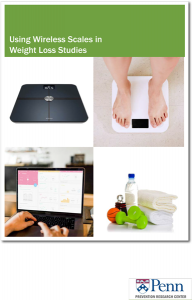May 18, 2017
 A new study in Cancer Epidemiology, Biomarkers, and Prevention by PRC Director Karen Glanz, PhD, MPH, and co-authors supports evidence that individuals may obtain higher levels of physical activity in more walkable environments. Their findings “also suggest that the built environment may be a more important factor than the natural environment when considering routine location-based physical activity. As the popularity of GPS- and accelerometer-enabled smartphones grows alongside accelerometry-based consumer wearable devices (55–58), these novel streams of spatial energetics data will provide translational insights into potential interventions to improve urban planning and green space development to optimize opportunities for physical activity and reduce cancer risk.”
A new study in Cancer Epidemiology, Biomarkers, and Prevention by PRC Director Karen Glanz, PhD, MPH, and co-authors supports evidence that individuals may obtain higher levels of physical activity in more walkable environments. Their findings “also suggest that the built environment may be a more important factor than the natural environment when considering routine location-based physical activity. As the popularity of GPS- and accelerometer-enabled smartphones grows alongside accelerometry-based consumer wearable devices (55–58), these novel streams of spatial energetics data will provide translational insights into potential interventions to improve urban planning and green space development to optimize opportunities for physical activity and reduce cancer risk.”
May 3, 2017
On Friday, April 28th, the UPenn PRC hosted ” Accelerating Policies & Research on Food Access, Diet, and Obesity Prevention”, a day-long symposium which brought together prevention health researchers and public health advocates to discuss today’s food environment and focus on future directions for this important health topic. Special thanks to the Planning Committee and the UPenn PRC Training Core faculty and staff for their leadership and support in making this event possible.
Mariana-Chilton-w-LoveStatue-450-600
Mariana Chilton, PhD, MPH, Center for Hunger-Free Communities, delivered the afternoon Keynote: From Evidence on Hunger, to Action on Food, to Community Transformation.
J-Pomeranz-1-450-600
Jennifer Pomeranz, JD, MPH, NYU College of Global Public Health
Tracy-Fox-1-450-600
Tracy Fox, MPH, RD, Food, Nutrition & Policy Consultants, LLC
A-Yaroch-3-450-600
Amy Yaroch, PhD, Gretchen Swanson Center for Nutrition
AllisonKarpyn-450-600
Allison Karpyn, PhD, University of Delaware: Achieving Food Security in Small Island Developing States, the Bahamas Example
CherylBettigole-450-600
Cheryl Bettigole, MD, MPH, Philadelphia Department of Public Health: Improving Health Through Food Policies
CCannuscio 1-450-600
Carolyn Cannuscio, ScD, ScM, University of Pennsylvania: Advancing Literacy Through Cooking
sq Lehmann Lang
Yael Lehmann, MS, The Food Trust, and Brian Lang, MA, National Campaign for Healthy Food Access: Public Policy & Healthy Food Access in the Trump Era
Breakout_Session_Panel2-450-600
Breakout Session Group Report Out.
Alyssa Yackle, MPA, Amy Bleakley, PhD, MPH, Moriah Hall, MPH, Ben Young, all from the University of Pennsylvania. Moderated by Douglas J. Wiebe, PhD, UPenn PRC Training Core Lead
ChriquiLemonAmmermanJohnson2-Symp
Afternoon Panel Session: Translating Research into High Impact Policy.
Jamie Chriqui, PhD, MHS, University of Illinois Chicago PRC,Stephenie Lemon, PhD, UMass Worcester PRC, Alice Ammerman, DrPH, University of North Carolina PRC, Carolyn Johnson, PhD, Tulane PRC
Mar 21, 2017

On Friday, April 28th, the University of Pennsylvania Prevention Research Center is hosting a symposium: “Accelerating Policies & Research on Food Access, Diet, and Obesity Prevention.” This one-day interdisciplinary event highlights the most current research on food access, diet, and obesity. Distinguished scholars and leaders in the fields of public health and nutrition will focus on bridging the gap between research and practice. For more information and to register, go to: https://upennprcsymposium.splashthat.com/
Student Alert !!!
Join us on Thursday, April 27th from 4:00-6:00 pm for a public health student pitch competition. Students may display a poster or use 5 minutes to teach something they are passionate about in the fields of public health and prevention research, nutrition or health policy. For more information about the Thursday pitch competition or about student scholarships to the Friday symposium, contact Victoria Worthen at vworthen@upenn.edu .
Feb 16, 2017
UPenn PRC Director Karen Glanz, PhD, MPH, was interviewed with Penn Professor Jason Riis by Dan Loney on Knowledge@Wharton about how major brand marketing favors junk food over healthy food options in the consumer marketplace. “Food production companies are in the business of making profit, not making healthier food,” Glanz noted, adding that short-term corporate expectations based on quarterly earnings hinder a long-term strategy to build consumer relationships with healthier food choices.
“Do they market healthy foods as heavily as unhealthy foods? Do healthy foods get the same bells and whistles and kid-friendly appeals as the bad stuff?” Glanz questioned, adding that the build-up of consumer dependence on salt, sugar, and fat has taken place over many years, a result of research and marketing that targets those taste cravings in consumers.
Glanz observed there has been more success in the promotion of low and zero calorie drinks and bottled water. “The beverage market is interesting and has a different trajectory than the food and snack market,” says Glanz. “Calorie-free drinks are well-established. They sell less but sell well.”
Glanz also gave a nod to former First Lady Michelle Obama’s healthy eating and Let’s Move initiatives. “The First Lady’s signature programs have been a catalyst for promoting health. They’re two sides of the same issue.”
Feb 8, 2017
 In the December 2016 issue of Population Health Management, new research by UPenn PRC Director Karen Glanz, PhD, MPH, and Core Lead David Grande, MD, MPA, examines how evidence-based interventions help community health worker (CHW) programs adapt to health care needs.
In the December 2016 issue of Population Health Management, new research by UPenn PRC Director Karen Glanz, PhD, MPH, and Core Lead David Grande, MD, MPA, examines how evidence-based interventions help community health worker (CHW) programs adapt to health care needs.
Jan 18, 2017
 PHILADELPHIA (January 13, 2017) – The United States Secretary of Health and Human Services (HHS), Sylvia Burwell, recently appointed the University of Pennsylvania’s Karen Glanz, PhD, MPH, George A. Weiss University Professor and Professor of Epidemiology and Nursing, to the Advisory Council for the National Heart, Lung and Blood Institute (NHLBI). The appointment is for a four-year term.
PHILADELPHIA (January 13, 2017) – The United States Secretary of Health and Human Services (HHS), Sylvia Burwell, recently appointed the University of Pennsylvania’s Karen Glanz, PhD, MPH, George A. Weiss University Professor and Professor of Epidemiology and Nursing, to the Advisory Council for the National Heart, Lung and Blood Institute (NHLBI). The appointment is for a four-year term.
The Council advises the HHS Secretary, the Assistant Secretary for Health, the Director of the National Institutes of Health (NIH), and the Director of the National, Heart, Lung, and Blood Institute on matters relating to the cause, prevention, diagnosis and treatment of heart, blood vessel, lung and blood diseases; the use of blood and blood products and the management of blood resources; and on sleep disorders. The Council also considers applications for research and research training grants and cooperative agreements and recommends funding for those applications that show promise of making valuable contributions to human knowledge and health improvement. The Council may also make recommendations to the Director, NHLBI, respecting research conducted at the Institute. The Council meets four times a year–winter, spring, and two meetings in the fall.
About Dr. Glanz
Dr. Glanz’s research in community and health care settings focuses on healthy eating, obesity prevention, cancer prevention and control, chronic disease management and control, reducing health disparities, and health communication technologies. Her research about understanding, measuring, and improving healthy food environments has been widely recognized and replicated.
Glanz has published more than 440 journal articles and book chapters. Over the past 15 years, she has received more than $40 million in research funding. Current studies range from a Centers for Disease Control (CDC)-funded examination of media communication strategies for reducing ultraviolet exposure to prevent skin cancer to an NIH-funded study of the impact of healthy food marketing in supermarkets and a Robert Wood Johnson Foundation-funded evaluation of the impacts of the New Jersey Food Financing Initiative.
The University of Pennsylvania recruited Glanz, who holds dual appointments in medicine and nursing, as a Penn Integrates Knowledge (PIK) Professor in 2009. PIK professorships bring in eminent scholars whose work draws from multiple academic disciplines and whose achievements demonstrate a rare ability to thrive at the intersection of multiple fields.
Glanz and her colleagues founded the UPenn Prevention Research Center, which serves as a catalyst for interdisciplinary research in chronic disease prevention and for advancing prevention research. Launched in 2014 with a $4.35 million grant from the CDC, it’s one of 26 Prevention Research Centers nationwide, and has received more than $ 4 million in supplementary research funding. Glanz and Kevin Volpp, MD, PhD, direct the center, through which faculty from medicine, business, and other fields, and researchers from The Children’s Hospital of Philadelphia, collaborate on research in cancer prevention, weight loss, the economic impact of clinical trials, and other areas. Glanz is also director of Penn’s Center for Health Behavior Research, which facilitates collaboration on health behavior research, and advancing measurement of health behaviors and the use of health behavior theory. It is part of the Center for Clinical Epidemiology and Biostatistics at the Perelman School of Medicine.
Glanz is an elected Member of the National Academy of Medicine (formerly named Institute of Medicine), and a Fellow in the Society for Behavioral Medicine. Her work and research has been honored with many awards including the Elizabeth Fries Health Education Award from the James and Sarah Fries Foundation, and a bronze award in the ‘Best Practices in Distance Learning Program’ from the US Distance Learning Association. Glanz received her PhD, Master of Public Health, and Bachelor of Arts degrees from the University of Michigan in Ann Arbor.
Dec 19, 2016

The University of Pennsylvania Celebrates 30 Years of the CDC’s Prevention Research Center Program
UPenn PRC Anniversary Story
December 2016
Prostate Cancer Evidence Academy: A Year of Progress
Prostate cancer is the second leading cause of death from cancer in men; being African American is a key risk factor. Philadelphia, the fifth largest city in the US, is 44% black/ African American and in Pennsylvania, the incidence rate for prostate cancer is 58% higher for African American men than for white men.
These sobering statistics were incentive for UPenn PRC Director and Penn Integrates Knowledge Professor Karen Glanz, PhD, MPH, and Tim Rebbeck, PhD, to host the first Prostate Cancer Evidence Academy at the University of Pennsylvania in November, 2015. Sponsored by the UPenn PRC, the Cancer Prevention and Control Research Network, and the Penn Center for Excellence in Prostate Cancer Disparities, the conference gathered nearly 100 attendees, including health care providers, researchers, policy makers, survivors, and advocates for a comprehensive symposium on prevention, control, awareness, and education.
The goal of the conference was not only to present the latest data but to engage clinicians, public health professionals, policy makers, and patients/survivors in bridging the gap between research and practice. Bringing together the widest possible range of stakeholders created a unique model for sharing evidence-based research, models, and programs.
Neha Vapiwala, MD, a Penn associate professor of radiation oncology, attended the conference. Now, she and Glanz are working on a new train-the-trainer project which provides respected and trusted community and religious leaders with basic information about prostate cancer. The researchers see further applications of this model for other chronic diseases.
“Cultural myths and societal misperceptions about certain stigmatized diseases may prevent people from asking questions, understanding symptoms, or seeking care,” says Vapiwala,“Deep-rooted distrust of the health care system further exacerbates the problem.” “The conference was a first venture of its kind for us,” Glanz says. “Out of that came some clear needs, and some of them really converged with what Neha had noticed in her clinic.”
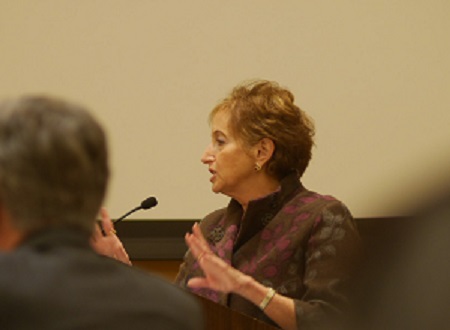
Dec 19, 2016
 UPenn PRC Director Karen Glanz, PhD, MPH, was interviewed with Penn Professor Jason Riis by Dan Loney on Knowledge@Wharton about how major brand marketing favors junk food over healthy food options in the consumer marketplace. “Food production companies are in the business of making profit, not making healthier food,” Glanz noted, adding that short-term corporate expectations based on quarterly earnings hinder a long-term strategy to build consumer relationships with healthier food choices.
UPenn PRC Director Karen Glanz, PhD, MPH, was interviewed with Penn Professor Jason Riis by Dan Loney on Knowledge@Wharton about how major brand marketing favors junk food over healthy food options in the consumer marketplace. “Food production companies are in the business of making profit, not making healthier food,” Glanz noted, adding that short-term corporate expectations based on quarterly earnings hinder a long-term strategy to build consumer relationships with healthier food choices.
“Do they market healthy foods as heavily as unhealthy foods? Do healthy foods get the same bells and whistles and kid-friendly appeals as the bad stuff?” Glanz questioned, adding that the build-up of consumer dependence on salt, sugar, and fat has taken place over many years, a result of research and marketing that targets those taste cravings in consumers.
Glanz observed there has been more success in the promotion of low and zero calorie drinks and bottled water. “The beverage market is interesting and has a different trajectory than the food and snack market,” says Glanz. “Calorie-free drinks are well-established. They sell less but sell well.”
Glanz also gave a nod to former First Lady Michelle Obama’s healthy eating and Let’s Move initiatives. “The First Lady’s signature programs have been a catalyst for promoting health. They’re two sides of the same issue.”
Nov 30, 2016
 UPenn PRC Director and Penn Integrates Knowledge Professor Karen Glanz, PhD, is tackling the stigma associated with prostate cancer in a new project with collaborator Neha Vapiwala, MD, Penn associate professor of radiation oncology. Building on the 2015 UPenn PRC Prostate Cancer Evidence Academy conference, Glanz and Vapiwala seek to empower prostate cancer patients with information and support that will help them with decision making about their medical and treatment choices. “The conference was a first venture of its kind for us,” Glanz says. “Out of that came some clear needs, and some of them really converged with what Neha had noticed in her clinic.”
UPenn PRC Director and Penn Integrates Knowledge Professor Karen Glanz, PhD, is tackling the stigma associated with prostate cancer in a new project with collaborator Neha Vapiwala, MD, Penn associate professor of radiation oncology. Building on the 2015 UPenn PRC Prostate Cancer Evidence Academy conference, Glanz and Vapiwala seek to empower prostate cancer patients with information and support that will help them with decision making about their medical and treatment choices. “The conference was a first venture of its kind for us,” Glanz says. “Out of that came some clear needs, and some of them really converged with what Neha had noticed in her clinic.”
The project, funded in part by the Prostate Cancer Foundation, was inspired by a health-conscious, African-American, 40-something patient of Vapiwala’s who was unaware a man his age could get prostate cancer. The researchers envision a train-the-trainer type program. Phase one, in process, is four focus groups composed of African Americans and Latinos, two high-risk populations. Part two will include creating mini-curricula and working with community organizations to select the trainers. Glanz and Vapiwala believe their approach may be applicable to other diseases. “We’re using prostate cancer as a model,” Vapiwala says. “You could insert cervical cancer, diabetes, or any number of health conditions associated with stigma, fear, and mistrust.”
Read more about the project in Penn Current.
Oct 5, 2016

On September 23, 2016, PRC Principal Investigator, Fran Barg, PhD, and Co-Investigators Heather Klusaritz, PhD, Karen Glanz, PhD and Peter Cronholm, MD, for the Philadelphia Health Leadership Institute (PHLI) project traveled to Washington to participate in a White House Workshop on Research and University Engagement in Promise Zones.
In his 2013 State of the Union address, President Obama announced the establishment of the Promise Zones Initiative to partner with high-poverty communities across the country to create jobs, increase economic security, expand educational opportunities, increase access to quality, affordable housing, and improve public safety. Philadelphia was one of three cities to receive the first Promise Zone designations in 2014. Today, twenty-five communities have received a Promise Zone designation.
The White House workshop brought together leading researchers and academic institutions from Promise Zone communities to examine how university partnerships can support Promise Zone initiatives and advance the goals of the program.

Dr. Klusartiz lead the Access to Care working group and, with Drs. Barg and Glanz, participated in a discussion on best practices for academic-community partnerships and the challenges faced in building these partnerships. The PHLI was used as an example of the capacity building role universities bring to partnering with Promise Zone communities.
Klusaritz said “this event demonstrates the Federal government’s commitment to promoting and supporting Academic-Community partnerships. And the participants showed an equal commitment to addressing the concentration of health and social needs in their Promise Zone neighborhoods.” Noting the importance of the Promise Zone initiative and of the role of universities in working towards President Obama’s declaration that a “person’s zip code shouldn’t decide their destiny,” Klusaritz added “sharing time with other Promise Zone projects around the country brought home how our Penn PHLI project is uniquely positioned to build capacity to effect change in the Philadelphia Promise Zone.”
.
Jun 21, 2016

As a guest on Knowledge@Wharton radio, UPenn PRC Director Karen Glanz evaluated the health and financial implications of the Philadelphia’s new “soda tax” passed by City Council on June 16, 2016.
According to Glanz, while a difference in consumption could be seen within a year or two of implementation, the tax’s impact on disease risk factors may not be evident for another three to five years.
Jun 15, 2016
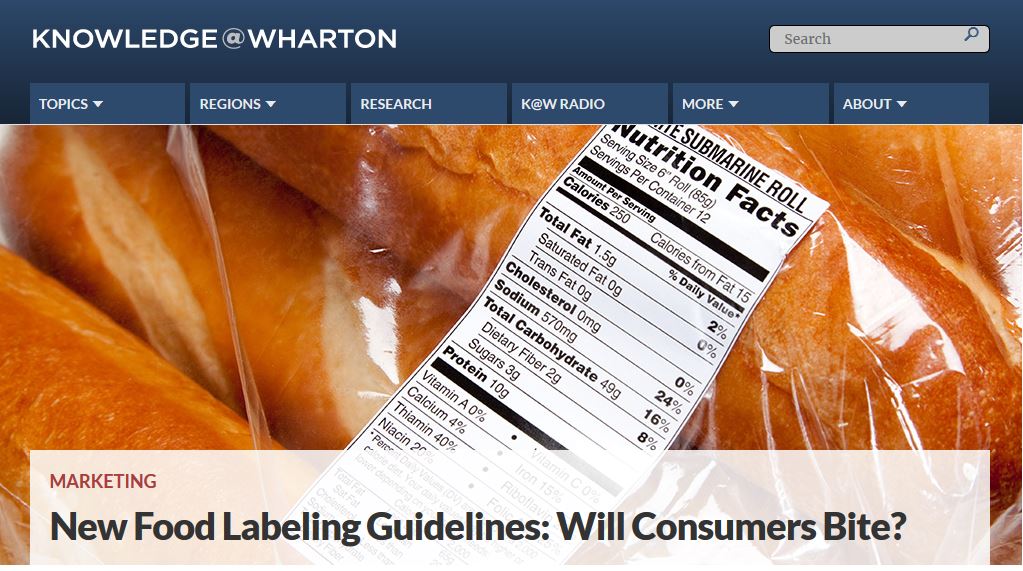
UPenn PRC Director, Karen Glanz, PhD, and Wharton marketing professor, Jason Riis discussed the new Federal food labeling guidelines on the June 13, 2016 edition of Knowledge@Wharton.
Observing that past labeling revisions often were driven by a single concern, such as trans fats or sugar, Glanz sees the shift towards a more comprehensive approach to portion sizes and total calorie intake as beneficial . “If these labels can nudge things in that direction and/or nudge the industry to reformulate the foods that will be less high-calorie, then that could move things without necessarily depending on people’s conscious decision-making,” she said.
“That all hinges on whether people actually read it and understand it, and whether it is easy to see and digest,” Glanz said. Displaying the nutrition information on the front of packs ensures that “consumers don’t have to turn the pack around to see that, or bring out their reading glasses,”
 A new study in Cancer Epidemiology, Biomarkers, and Prevention by PRC Director Karen Glanz, PhD, MPH, and co-authors supports evidence that individuals may obtain higher levels of physical activity in more walkable environments. Their findings “also suggest that the built environment may be a more important factor than the natural environment when considering routine location-based physical activity. As the popularity of GPS- and accelerometer-enabled smartphones grows alongside accelerometry-based consumer wearable devices (55–58), these novel streams of spatial energetics data will provide translational insights into potential interventions to improve urban planning and green space development to optimize opportunities for physical activity and reduce cancer risk.”
A new study in Cancer Epidemiology, Biomarkers, and Prevention by PRC Director Karen Glanz, PhD, MPH, and co-authors supports evidence that individuals may obtain higher levels of physical activity in more walkable environments. Their findings “also suggest that the built environment may be a more important factor than the natural environment when considering routine location-based physical activity. As the popularity of GPS- and accelerometer-enabled smartphones grows alongside accelerometry-based consumer wearable devices (55–58), these novel streams of spatial energetics data will provide translational insights into potential interventions to improve urban planning and green space development to optimize opportunities for physical activity and reduce cancer risk.”



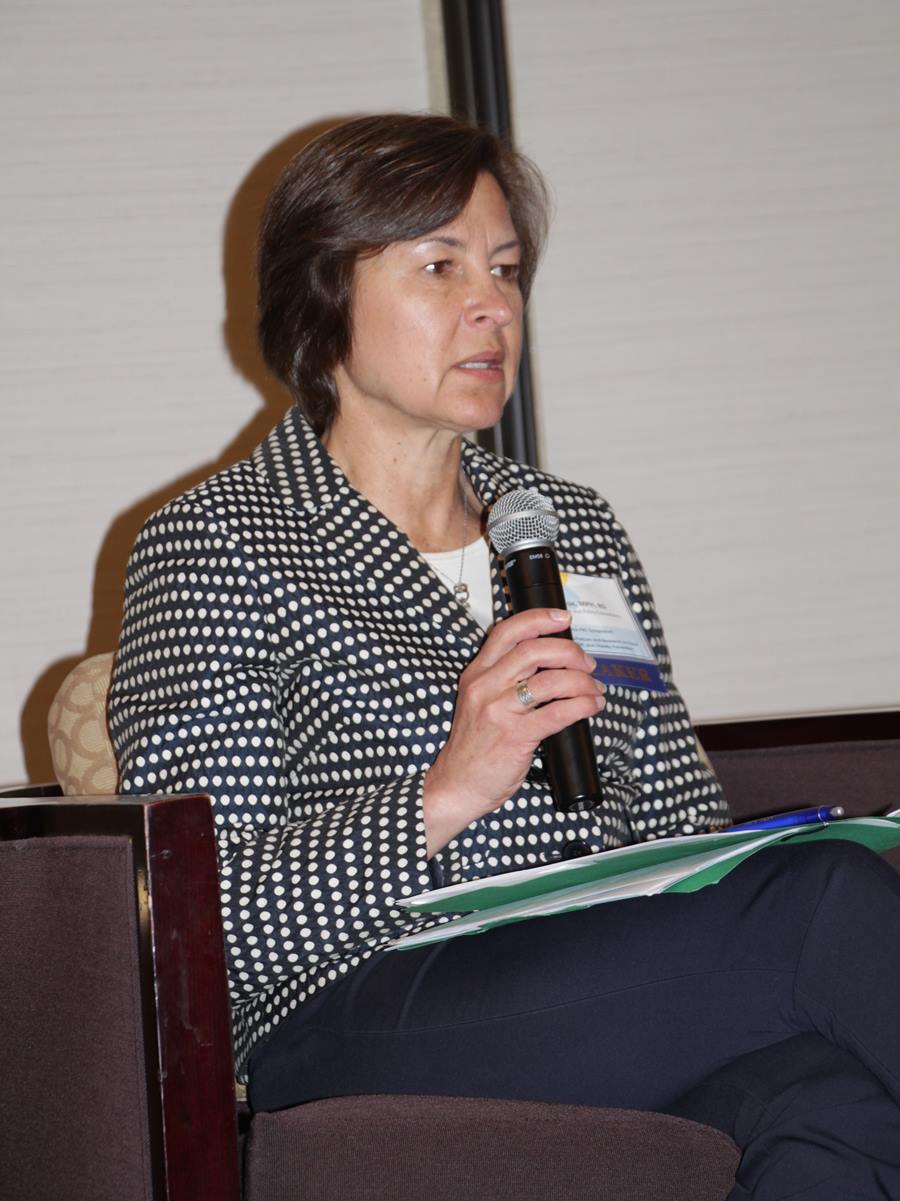

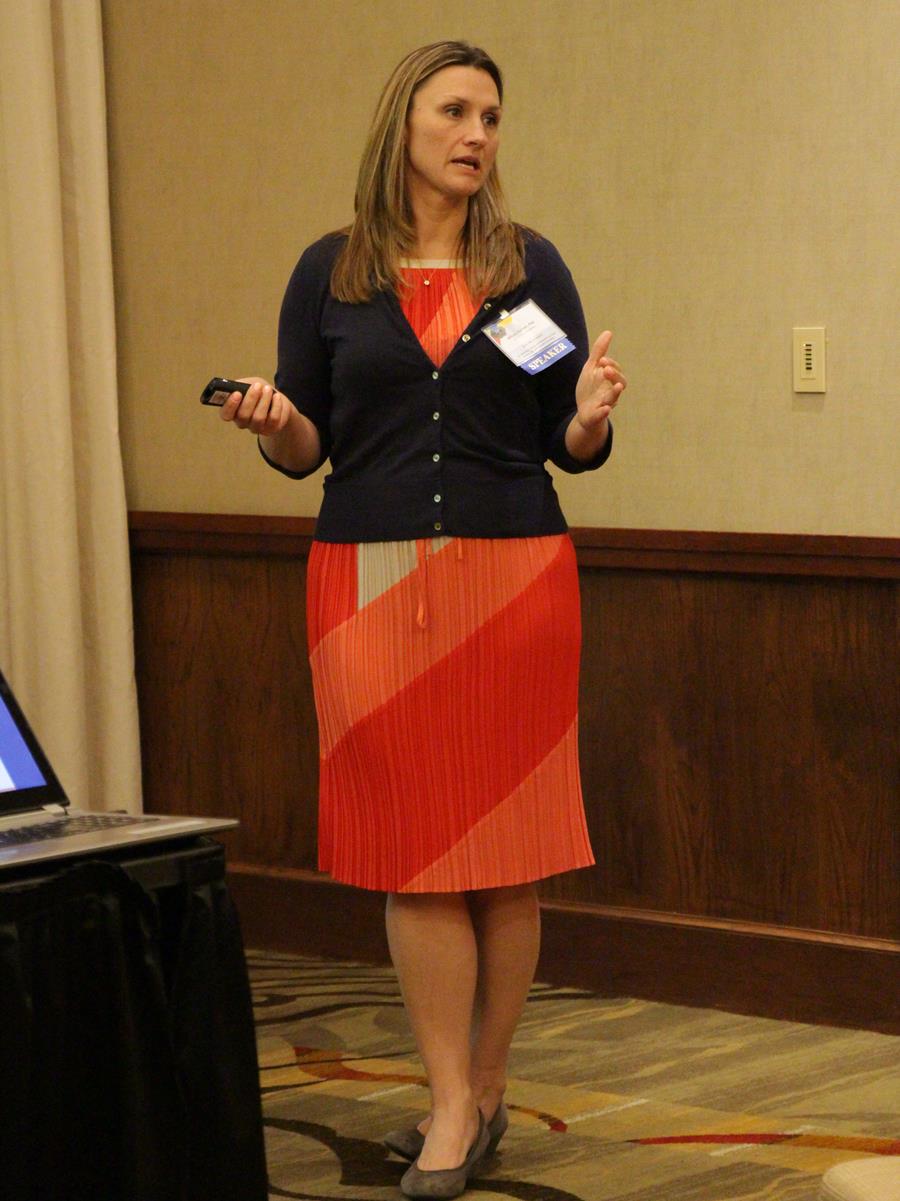











 UPenn PRC Director
UPenn PRC Director  UPenn PRC Director and Penn Integrates Knowledge Professor
UPenn PRC Director and Penn Integrates Knowledge Professor 



